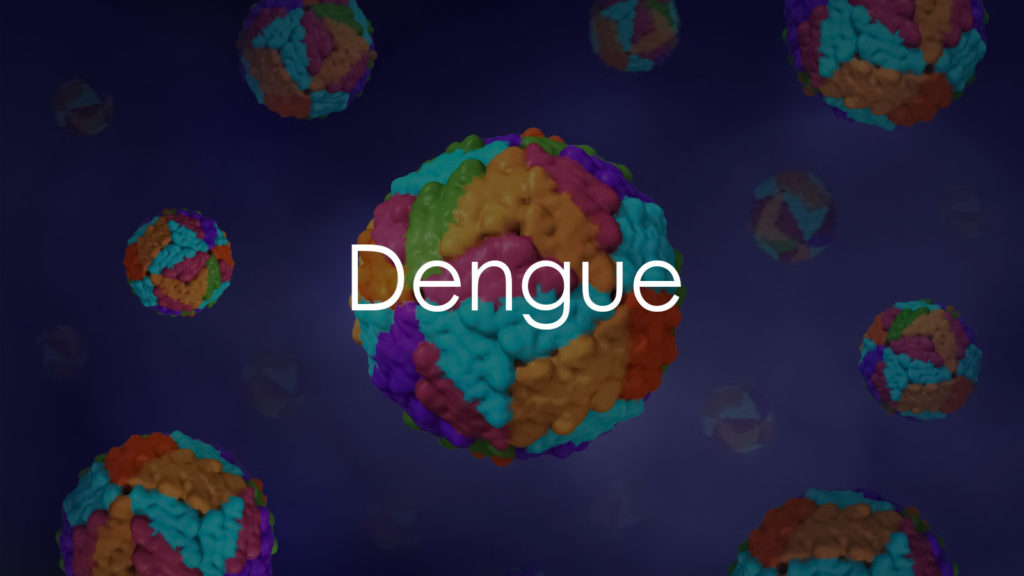Treatment of dengue focuses on alleviating symptoms, preventing complications, and supporting the body’s natural recovery process. While there is no specific antiviral treatment for dengue, effective management and supportive care are crucial for improving patient outcomes.

Symptomatic Treatment
Pain and Fever Management
Over-the-Counter Pain Relievers
Pain and fever associated with dengue can be managed with over-the-counter pain relievers, such as those referring to acetaminophen. These medications help reduce fever and alleviate pain. It’s important to avoid nonsteroidal anti-inflammatory drugs (NSAIDs) and aspirin, as they can increase the risk of bleeding.
Dosage and Administration
Follow the recommended dosages and consult with a healthcare provider to ensure safe use, particularly in children and individuals with underlying health conditions.
Hydration
Oral Rehydration
Maintaining proper hydration is essential in managing dengue. Oral rehydration solutions, which contain electrolytes, are recommended to prevent dehydration caused by fever, vomiting, and diarrhea.
Intravenous Fluids
In severe cases where oral intake is insufficient or the patient is unable to drink due to nausea or vomiting, intravenous fluids may be necessary to maintain hydration and electrolyte balance.
Nutritional Support
Balanced Diet
Importance of Nutrition
A balanced diet is crucial for recovery from dengue. Proper nutrition supports the immune system, promotes healing, and provides the energy needed for recovery.
Dietary Recommendations
Patients should consume a diet rich in fruits, vegetables, lean proteins, and whole grains. Avoiding processed foods and excessive sugar is recommended to support overall health.
Nutritional Supplements
Vitamins and Minerals
Nutritional supplements, including vitamins and minerals, may be necessary to address deficiencies and support recovery. Vitamin C and zinc, for example, can help boost the immune system.
Consulting a Nutritionist
Consulting a nutritionist can help develop a personalized nutrition plan that meets the specific needs of dengue patients, ensuring they receive adequate nutrients for recovery.
Monitoring and Early Intervention
Regular Medical Check-Ups
Monitoring Progress
Regular medical check-ups are important to monitor the patient’s condition, detect complications early, and adjust the treatment plan as needed. Healthcare providers can offer guidance on managing symptoms and ensuring a smooth recovery.
Blood Tests
Frequent blood tests may be necessary to monitor platelet counts and hematocrit levels, which can indicate the severity of dengue and the risk of complications such as dengue hemorrhagic fever.
Managing Severe Dengue
Hospitalization
Criteria for Hospitalization
Patients with severe dengue symptoms, such as persistent vomiting, severe abdominal pain, bleeding, or signs of shock, should be hospitalized for intensive monitoring and treatment.
Intensive Care
In cases of dengue shock syndrome or severe bleeding, intensive care may be required. This includes close monitoring of vital signs, fluid management, and supportive care to stabilize the patient.
Blood Transfusions
Indications for Transfusions
Blood transfusions may be necessary for patients with severe bleeding or very low platelet counts. This helps manage blood loss and improve clotting.
Monitoring and Administration
Transfusions should be administered under strict medical supervision, with careful monitoring of the patient’s response to treatment and potential side effects.
Preventing Complications
Bleeding Precautions
Avoiding NSAIDs and Aspirin
Patients should avoid medications that can increase the risk of bleeding, such as NSAIDs and aspirin. These medications can exacerbate bleeding tendencies in dengue patients.
Careful Monitoring
Close monitoring for signs of bleeding, such as petechiae, gum bleeding, or blood in vomit or stool, is essential for early detection and management of complications.
Rest and Activity Modification
Adequate Rest
Adequate rest is crucial for recovery from dengue. Patients should avoid strenuous activities that can increase the risk of bleeding or exacerbate symptoms.
Gradual Return to Activities
A gradual return to normal activities is recommended once symptoms improve. Patients should listen to their bodies and avoid overexertion to prevent setbacks in recovery.
Psychological Support
Coping with Illness
Mental Health Services
Coping with the physical and emotional challenges of dengue can be difficult. Mental health services, including counseling and therapy, can help patients and their families manage stress, anxiety, and depression.
Support Networks
Building a strong support network of family, friends, and healthcare professionals can provide essential emotional and practical support for individuals affected by dengue.
Preventive Measures
Vector Control
Reducing Mosquito Breeding Sites
Effective vector control measures focus on reducing mosquito populations by eliminating breeding sites. This includes removing standing water from containers, using insecticides, and employing biological control methods.
Personal Protection
Using mosquito repellents, wearing long-sleeved clothing, and using bed nets can help protect individuals from mosquito bites, reducing the risk of dengue transmission.
Vaccination
Dengue Vaccines
Vaccination is a key strategy for preventing dengue. The development and deployment of effective dengue vaccines can reduce the incidence and severity of the disease. Vaccines are especially important in endemic areas where dengue transmission is high.
Public Health Campaigns
Public health campaigns to promote vaccination and educate communities about dengue prevention can significantly reduce the spread of the virus.
Conclusion
Effective treatment of dengue involves a combination of symptomatic relief, hydration, nutritional support, and monitoring for complications. In severe cases, hospitalization and intensive care may be necessary. By following medical advice, maintaining good hygiene practices, and ensuring vaccination, individuals can recover from dengue and help prevent its spread. Early diagnosis and prompt treatment are key to managing symptoms, reducing the risk of severe complications, and improving overall health outcomes.